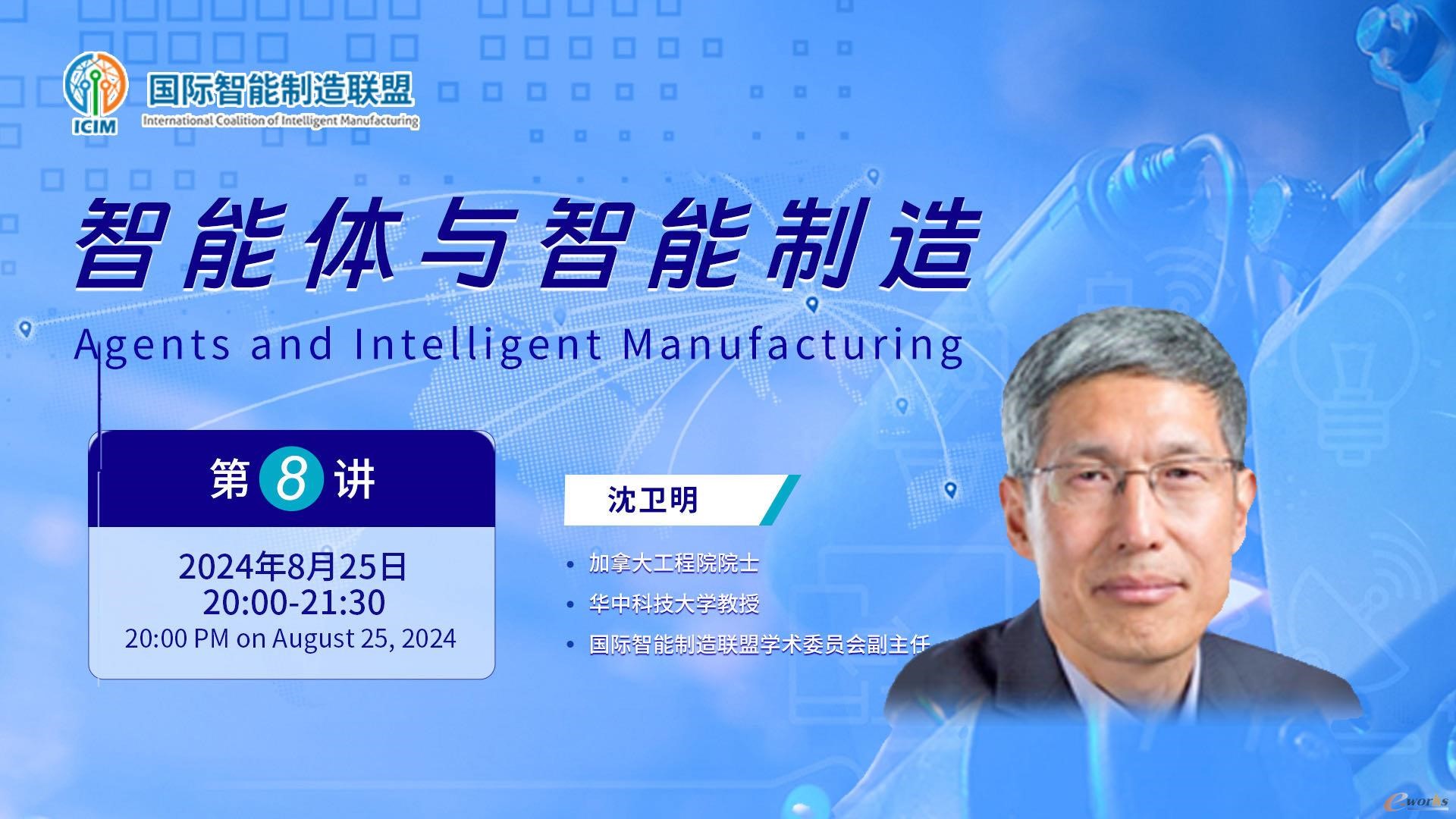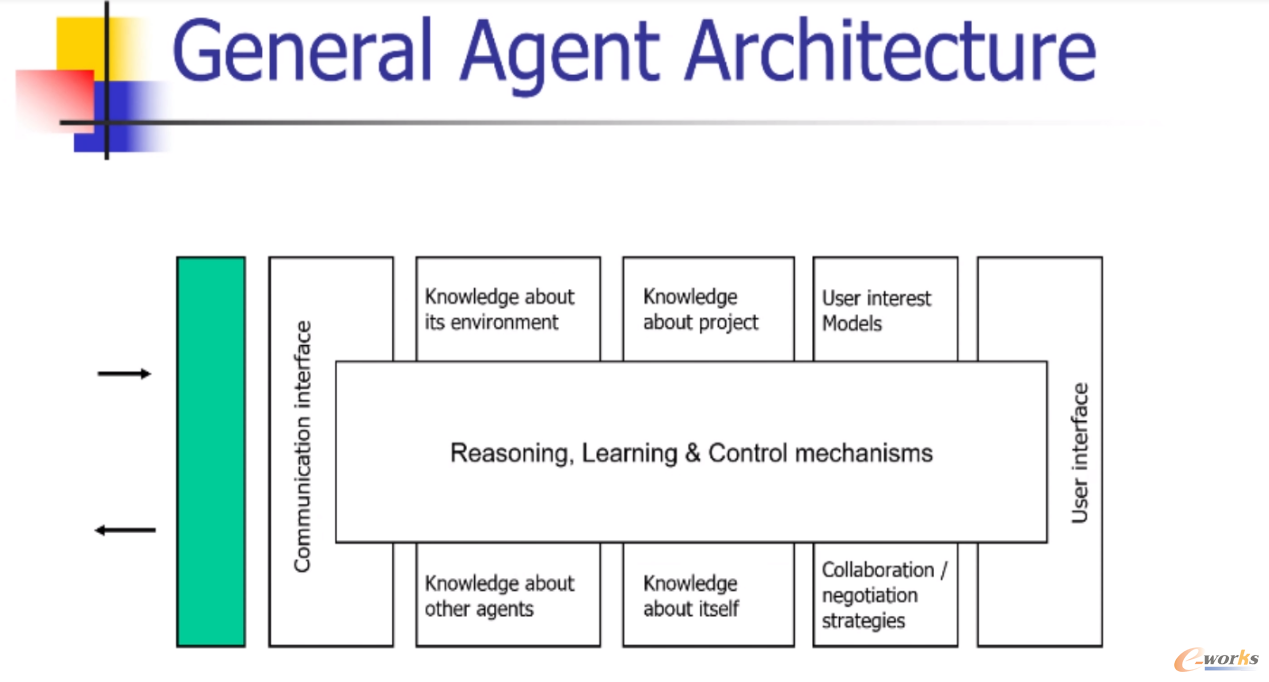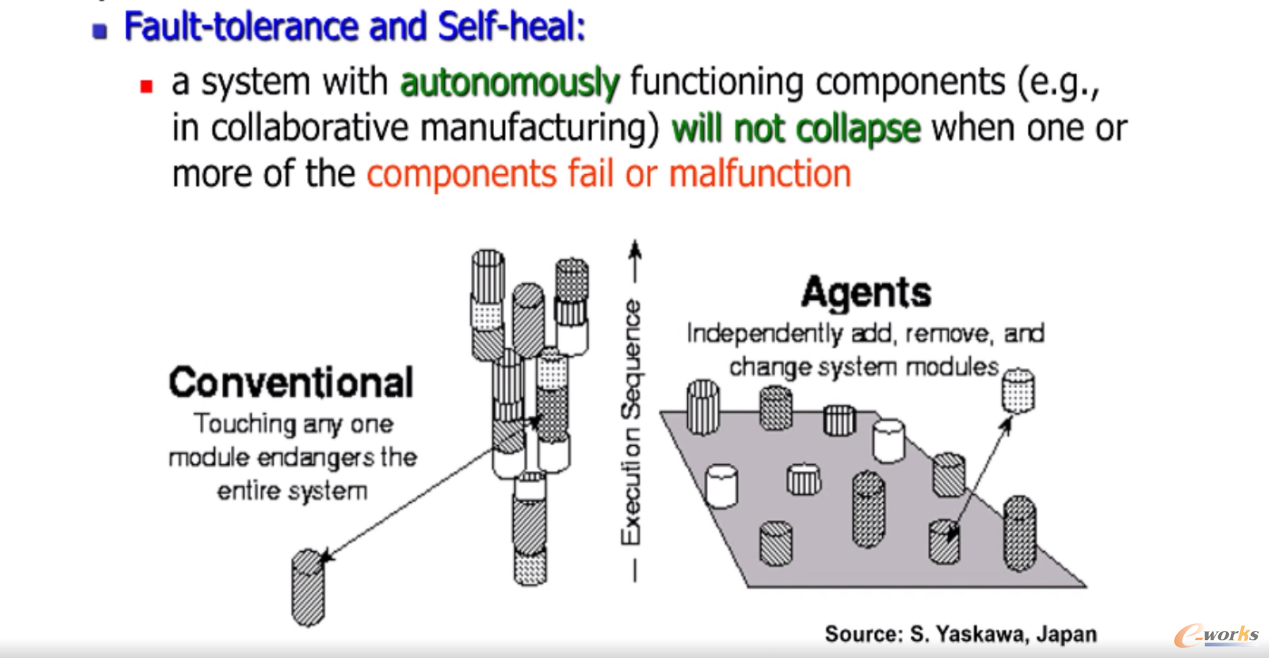The 8th session of 2024 ICIM lecture series focusing on agents and intelligent manufacturing
On August 25, 2024, the International Coalition of Intelligent Manufacturing (ICIM) successfully held the 8th session of the "Win-win Cooperation: Intelligent Manufacturing in a Global Vision" online lecture series. This lecture is honored to invite Dr. Weiming Shen as the keynote speaker. He is a Fellow of the Canadian Academy of Engineering, a professor at Huazhong University of Science and Technology (HUST) and the Vice-Chair of ICIM Academic Committee. His wonderful lecture "Agents and intelligent manufacturing" has gained wide attention and attracted over 3,000 views.

Figure 1 Professor Weiming Shen, Fellow of Canadian Academy of Engineering, professor of Huazhong University of Science and Technology
Based on his profound experience in agent-based manufacturing research, Professor Shen gave a comprehensive introduction to the developments of agent technology. He analyzed the differences between agents and multi-agent systems, clarified the features of agents, and divided applications into five levels: machine level, shop floor/plant level, enterprise level, supply chain level and after-sales service level. Professor Shen believes that in the field of engineering and manufacturing, an agent can be defined as a software system that communicates and cooperates with other software systems to solve a complex problem that is beyond of the capability of each individual software system. He pointed out that agents are divided into physical and functional agents. The former serves as the brain to control physical manufacturing resources such as a CNC machine or a robot; the latter is used for troubleshooting and production scheduling. He emphasized that usually agents are best developed not in isolation but as parts of a multi-agent system. A multi-agent system can also be defined as “a loosely coupled network of problem solvers that work together to solve problems that are beyond their individual capabilities”.
Professor Shen said that the general architecture of an agent is divided into four layers: on the top learning, control, and reasoning mechanisms, and the other three layers are responsible for perception, information transmission and execution, and interactions between devices, people, and things. With the continuous advancement of technology and its application, this architecture has been further enriched and expanded. On this basis, other architectures have integrated various databases, knowledge bases and intelligent models to improve the intelligence level and application capabilities. But no matter how it evolves, this general agent architecture is still the core foundation.

Figure 2 General agent architecture
Professor Shen pointed out that the main features of agents are autonomous, proactive, collaborative, fault tolerant and self-healing. Agents can automatically adjust their behavior and status according to changes in the external environment, and perform self-management and self-regulation; they can take actions spontaneously based on the goals or environmental needs without relying on external impulse; they can coordinate and collaborate with each other. In addition, the multi-agent system with autonomously functioning components will not collapse when components fail or malfunction.

Figure 3 Fault-tolerance and self-heal of agents
Professor Shen also elaborated on the specific applications of agents in intelligent manufacturing based on his own research results, including shop floor management, automated painting, etc. He said that industrial Internet technology has injected new vitality into agents. The combination of agents with advanced technologies such as the Internet of Things and big data has achieved significant improvements in intelligence, which enables to solve complex problems more efficiently. Integrating industrial large models with agents will be a trend in the future trend.
At the end of the lecture, the Professor had a lively exchange with the online audience and answered questions about commercialized cases of agents, the main functions of multi-factory agents, and the future trends of agents. His unique insights brought the audience valuable enlightenment.
This online lecture was hosted by Dr. Pei Huang, Deputy Secretary-General of ICIM and CEO of e-works.
The eighth session came to a successful conclusion and once again led everyone to the forefront of manufacturing intelligence. This lecture deepened everyone's understanding of the AI agent and stimulate expectations for technological innovations as well as industrial upgrading both inside and outside the industry. It also revealed that manufacturing industry will evolve into a more efficient, flexible and sustainable future through the deep integration of agents and advanced technologies.

Figure 1 Professor Weiming Shen, Fellow of Canadian Academy of Engineering, professor of Huazhong University of Science and Technology
Based on his profound experience in agent-based manufacturing research, Professor Shen gave a comprehensive introduction to the developments of agent technology. He analyzed the differences between agents and multi-agent systems, clarified the features of agents, and divided applications into five levels: machine level, shop floor/plant level, enterprise level, supply chain level and after-sales service level. Professor Shen believes that in the field of engineering and manufacturing, an agent can be defined as a software system that communicates and cooperates with other software systems to solve a complex problem that is beyond of the capability of each individual software system. He pointed out that agents are divided into physical and functional agents. The former serves as the brain to control physical manufacturing resources such as a CNC machine or a robot; the latter is used for troubleshooting and production scheduling. He emphasized that usually agents are best developed not in isolation but as parts of a multi-agent system. A multi-agent system can also be defined as “a loosely coupled network of problem solvers that work together to solve problems that are beyond their individual capabilities”.
Professor Shen said that the general architecture of an agent is divided into four layers: on the top learning, control, and reasoning mechanisms, and the other three layers are responsible for perception, information transmission and execution, and interactions between devices, people, and things. With the continuous advancement of technology and its application, this architecture has been further enriched and expanded. On this basis, other architectures have integrated various databases, knowledge bases and intelligent models to improve the intelligence level and application capabilities. But no matter how it evolves, this general agent architecture is still the core foundation.

Figure 2 General agent architecture
Professor Shen pointed out that the main features of agents are autonomous, proactive, collaborative, fault tolerant and self-healing. Agents can automatically adjust their behavior and status according to changes in the external environment, and perform self-management and self-regulation; they can take actions spontaneously based on the goals or environmental needs without relying on external impulse; they can coordinate and collaborate with each other. In addition, the multi-agent system with autonomously functioning components will not collapse when components fail or malfunction.

Figure 3 Fault-tolerance and self-heal of agents
Professor Shen also elaborated on the specific applications of agents in intelligent manufacturing based on his own research results, including shop floor management, automated painting, etc. He said that industrial Internet technology has injected new vitality into agents. The combination of agents with advanced technologies such as the Internet of Things and big data has achieved significant improvements in intelligence, which enables to solve complex problems more efficiently. Integrating industrial large models with agents will be a trend in the future trend.
At the end of the lecture, the Professor had a lively exchange with the online audience and answered questions about commercialized cases of agents, the main functions of multi-factory agents, and the future trends of agents. His unique insights brought the audience valuable enlightenment.
This online lecture was hosted by Dr. Pei Huang, Deputy Secretary-General of ICIM and CEO of e-works.
The eighth session came to a successful conclusion and once again led everyone to the forefront of manufacturing intelligence. This lecture deepened everyone's understanding of the AI agent and stimulate expectations for technological innovations as well as industrial upgrading both inside and outside the industry. It also revealed that manufacturing industry will evolve into a more efficient, flexible and sustainable future through the deep integration of agents and advanced technologies.








